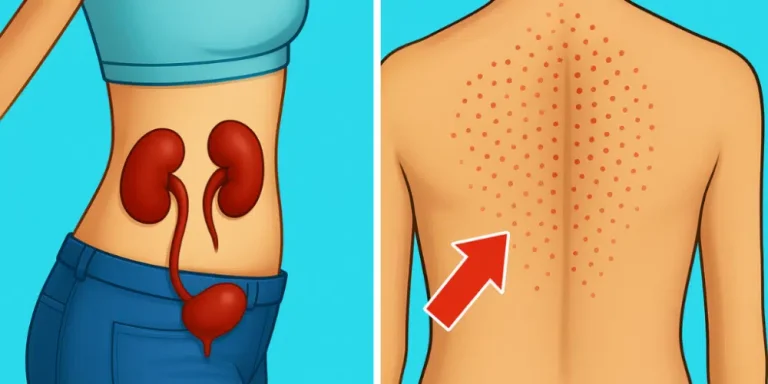11, 10. Muscle Cramps and Osteoporosis

Low calcium levels, often linked to kidney problems and high phosphate, can cause painful muscle cramps, especially at night. Additionally, the body releases parathyroid hormone to try and get calcium from bones when levels are low. Over time, this weakens bones, leading to osteoporosis. Signs include height loss or fractures from minor falls, particularly in the wrist, spine, or hips.
9, 8. Itchy Skin and Restless Legs Syndrome

As toxins build up in the blood (uremia), they can irritate the skin, causing intense itching, often worse at night. These toxins can also make nerve endings more sensitive. Uremia can also contribute to restless legs syndrome, a condition causing an urge to move your legs, especially when trying to sleep. This is partly due to how toxins affect iron levels and the hormone hepcidin, which can lead to iron deficiency and the symptoms of restless legs.
7, 6. Metallic Taste and Loss of Appetite

When uremic toxins accumulate, they can affect your taste buds, leading to a metallic taste in your mouth, similar to licking a penny. These toxins can also make your breath smell like urine (uremic fetor). This change in taste and smell, along with toxins affecting the brain’s appetite control center, can lead to a loss of appetite, nausea, and unintentional weight loss.
5. Easy Bruising

Uremic toxins can make platelets, the blood cells that help stop bleeding, less sticky. This means people with kidney disease may bruise more easily, have more frequent nosebleeds, or experience bleeding gums when brushing their teeth.
4, 3. Uremic Frost and Pericarditis

In very advanced kidney failure, sweat can become so concentrated with toxins that it leaves a fine white powder on the skin when it dries – this is called uremic frost. Another serious sign is pericarditis, inflammation of the sac around the heart caused by uremic toxins. This can cause chest pain as the heart rubs against the inflamed tissue.
2. Fatigue (Anemia)

Kidneys produce a hormone called erythropoietin, which signals the bone marrow to make red blood cells. When kidneys are damaged, they produce less of this hormone, leading to anemia (low red blood cell count). This anemia is a major cause of fatigue, making even simple activities feel exhausting. Fortunately, this can often be treated with medication.
see more on the next page
